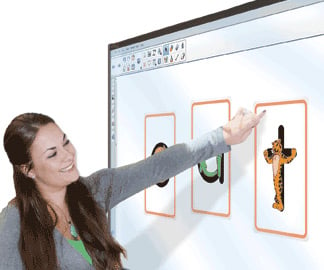
Zoo-phonics® promotes optimal learning and development.
According to the NAEYC (National Association for the Education of Young Children), “Developmentally appropriate practice, often shortened to DAP, is an approach to teaching grounded both in the research on how young children develop and learn and in what is known about effective early education.
Its framework is designed to promote young children’s optimal learning and development. DAP involves teachers meeting young children where they are (by stage of development), both as individuals and as part of a group; and helping each child meet challenging and achievable learning goals.”*
DAP includes five complex principles:
- The first is to create a caring community of learners. When creating this community each member must feel valued by others. Each member is given respect and is held accountable for their learning and well being. The teachers set clear and reasonable expectations. Teachers listen to and acknowledge children’s feelings and respond in ways children understand to guide and model problem-solving. Teachers design and maintain a physical and psychological environment that is positive and feel safe for all children.
- The second principle is teaching to enhance development of learning. Teachers make it a priority to know each child well and also the most significant people in a child’s life. Teachers know what desired goals for the program are and how the programs curriculum is intended to achieve those goals. Teachers plan for learning experiences by implementing a comprehensive curriculum so that children can achieve goals in key areas. Teachers know how to scaffold children’s learning with just enough assistance for them to master the skill and begin to work on the next skill. Teachers draw on many teaching strategies to foster learning for the group and each child individually. Educators include all children regardless of special needs into all classroom activities with their peers.
- The third principal is to plan with Common Core Standards and other mandates in place using the curriculum to achieve important goals. Teachers use their extensive child development knowledge to identify and plan goals for the classroom that align with Common Core Standards and other mandates. Teachers utilize curriculum framework to ensure proper attention is given to learning goals. While planning teachers integrate experiences across several domains such as physical social emotional cognitive which include language literacy mathematics social studies science art music physical education and health.
- The fourth complex principle assessing children’s development and learning includes assessing the children’s progress and achievements in ongoing strategic purposeful way. Assessment must focus on children’s progress towards goals that are developmentally and educationally significant. There must be a system in place to collect analyze and use assessment data.
- The fifth principle is establishing reciprocal relationships with families. In relationships between teachers and families there must be a mutual respect. Corporation and shared responsibility including negotiation of conflict toward achievement of shared goals. Teachers work in partnership with families establishing and maintaining two-way communication with families. Teachers and families work as a team to share information about children’s goals progress and daily life. Family members are encouraged with multiple opportunities for family participation within the classroom setting.
* Learn more about DAP at NAEYC (National Association for the Education of Young Children).
